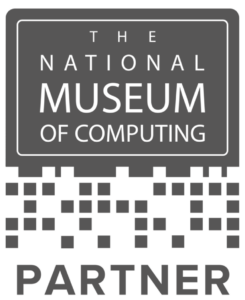Mohammed El-Arabi explains why leadership is just as a important for successful digital transformation as the underlying ITSM processes.
Going back a few years, before the digital transformation era, service management was for most organisations little more than a set of processes, with IT required to take the initiative in aligning with business goals and guaranteeing desired outcomes.
Even as the consultants started to talk about Enterprise Service Management as a way of extending the benefits of service management practices beyond IT, business people were still treating it as a pure IT development program; and the resources were still allocated from within the IT department.
However, a relatively small number of organisations were smart enough to assign their ITSM continuous improvement to the CFO, away from the IT department – engaging in a more strategic way with the business. And those organisations are the ones that are now in the strongest position to undertake a digital transformation.
Today of course the whole picture has changed. Not only has ITSM become more business centric, but there is a more mature approach to adopting and adapting services to meet the needs and aspirations of the business. Service management teams have a pivotal role to play in guaranteeing that the right outcomes are achieved in terms of automation and digitisation, but we still need to make sure that we have the right people in place to steer the transformation and engage with stakeholders.
This then leads to two very important questions. What do we really expect from those running digital transformation projects and managing ITSM frameworks? And what kind of skills do they need in addition to their knowledge of ITSM and practitioner accreditation?
In practice most of those assigned to run digital transformation projects are managers with more technical background than business and managerial experience. And this means that they are often ill equipped when it comes to aligning with the business and at the same time leading several functions across different departments without gaps or miscommunication. In short, they need to improve their LEADERSHIP skills.
A famous Vince Lombardi quote may be familiar to many: “Leaders are made, they are not born.” This is so true.
Organisations tend to look around for leaders who can make the right decisions and lead the digital transformation in the right direction, especially during turbulent times. But maybe we need to focus more on developing leadership skills among our existing teams and empowering those who display them. This has become one of the most desired areas of focus for many organisations in recent times due to the potential benefit of creating rounded, creative individuals with the right balance of business and leadership knowledge.
So while ITSM offers the best practice and methodologies to improve processes, leadership development provides those who run ITSM with the essential skills to improve the overall productivity and performance of the digital transformation. ITSM and leadership skills are twin critical success factors for any successful DT project:
- ITSM, to improve processes;
- Leadership skills, to empower people.
In many ways leadership is a process through which managers and leaders will be guided to reflect and gain awareness of who they are and what their potential strengths and weaknesses are. They can then be guided in a structured manner to improve on essential areas, bringing the best out of them and utilising their existing capabilities and resources to best effect.
As a leader, you are generally evaluated on managing people and driving them to achieve desired organisational outcomes. In simple terms, a leader should be exceptionally good at “getting things done” rather than “doing things”.
However, to “get things done”, you need to be influencing and challenging. You should be able to influence people to accept and face challenges with a positive attitude. While you manage others effectively, you need to retain a focus on your core job and responsibilities too. This in turn requires good delegation and effective communication.
Arguably, to become a strong leader your main priorities should be:
- Accommodate challenges
- Influence positively, and
- Improve productivity.
Furthermore, you need to engage with your direct reports as part of your own improvement process. Their feedback will be a critical factor that impacts your personal journey as a leader.
Explore feedback with an open mind to see if there is truly room for improvement. And if feedback is negative, make changes and then re-evaluate with trusted reports to make sure you are going in the right direction.
So leadership development is a process, and every bit as important as the ITSM processes that it accompanies. Do you have a leadership process in place as an organisation? Do you have a personal view of your leadership strengths and weaknesses? If not, I suggest you start now.
Coach Mohammed El-Arabi is a business critical consultant in service management.
If you’re not sure whether you have the right skills needed for senior leadership in service management, why not complete our SFIA-based PSMF self-assessment?

Mohammed El-Arabi
Coach Mohammed El-Arabi is a business critical consultant in service management.


